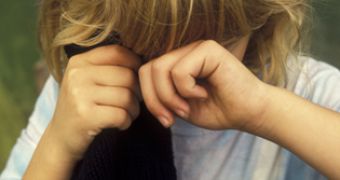Those who used to be maltreated (physically and verbally abused) when they were merely kids have higher odds of being obese adults, says a research published in this week's issue of the journal Molecular Psychiatry.
The link between maltreatment in childhood and obesity rates in adulthood was established by a team of King's College London researchers, who processed data collected by means of 41 other studies carried out on a global scale.
All in all, the specialists analyzed information concerning the psychological wellbeing and weight of 190,285 people worldwide.
As the researchers explain, the findings of this investigation add new evidence to previously formulated ideas that childhood maltreatment influences the individual's physical health in later life.
EurekAlert quotes lead author Dr. Andrea Danase, who summed up his and his fellow researchers' conclusions as follows:
“We found that being maltreated as a child significantly increased the risk of obesity in adult life.”
“Prevention of child maltreatment remains paramount and our findings highlight the serious long-term health effects of these experiences.”
The same source informs us that the idea that there is a link between maltreatment and obesity is backed up by information collected while carrying out several experiments on animals.
More precisely, it appears that animals exposed to stressful living conditions while still young had higher chances of packing excess weight.
“If the association is causal as suggested by animal studies, childhood maltreatment could be seen as a potentially modifiable risk factor for obesity – a health concern affecting one third of the population and often resistant to interventions,” Dr. Andrea Danase wished to stress.
The researchers warn that, although further studies on the matter at hand are needed, efforts need be made to curb child maltreatment, not just because it influences public health, but also because it toys with a person's mental wellbeing.
Presently, Dr. Andrea Danase wishes to continue his investigations and determine whether or not interventions might help alleviate the effect of childhood maltreatment on obesity in adulthood.

 14 DAY TRIAL //
14 DAY TRIAL //